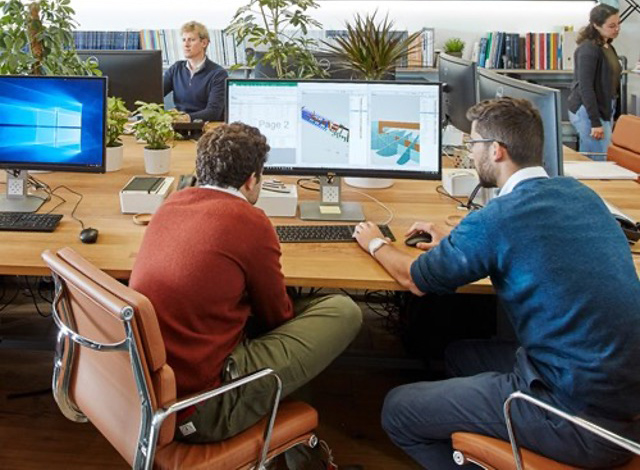
Systems Engineer
Welcome, young systems enthusiasts!

Systems engineering differs from traditional engineering:
A systems engineer plays a crucial role in designing, integrating, and managing complex systems throughout their lifecycle. Here are some of the key responsibilities and tasks they typically handle:
Design and development:
Integration and implementation:
Testing and evaluation:
Documentation and communication:

The term originated at Bell Telephone Laboratories in the 1940s. The term "systems engineering" was first used at Bell Telephone Laboratories in the 1940s.
Systems engineers work with a variety of other engineers to combine components into a system. They need a broad knowledge base that includes mathematics, computing, electronics, and more.
Systems engineering is used in many situations, including applying new discoveries to existing technical areas, and in urgent high-risk projects like space exploration.
Systems engineers need to be able to organize the large amount of information they deal with on a regular basis.
The National Council on Systems Engineering (NCOSE) was founded in 1990.
The NCOSE is a professional society for systems engineering that was founded to address the need for improvements in systems engineering practices and education.

What does a BMT Systems Engineer do?

Naval Architecture and Engineering are broad subjects requiring lots of skills.
Entering a career in Systems Engineering involves a combination of education, skill development, and professional experience.
Here’s a step-by-step guide on how to pursue a career in Systems Engineering globally:
Degree route
Attend: Sixth form or college
Qualification:
Subjects:
Attend: University
Qualification: BEng/MEng in Engineering based degree
Study:
Apply to BMT in your final year of university
Attend: BMT
Role: Graduate Systems Engineer
Experience:
Attend: BMT
Role: Systems Engineer
Experience: Choose a team and start developing your specialism.
* These timelines are indicative to give you an idea of the sort of path you might wish to take. There is some room for flexibility based on your academic aspirations.
Apprenticeship route
Attend:
Qualification: Level 3 Engineering Diploma
Subjects: Engineering related units/subjects
Attend: BMT
Role: Systems Engineer Apprentice
Qualification: Level 4 - HNC
Study: Engineering related units/subjects
Attend: BMT
Role: Systems Engineer Apprentice
Qualification: Level 5 - HND
Study: Engineering related units/subjects
Attend:
Role: Systems Engineer
Qualification: Part time degree
Study: Any course that’s applicable to work at BMT.
Attend: BMT
Role: Systems Engineer
Experience: Choose a team and start developing your specialism.

Thamira is a Senior Systems Engineer within the Systems Engineering Capability at BMT. When she is not showcasing requirements, she spends her time fighting the sewing machine and patching people up as a First Aider.
What do you do?
I manage and model requirements and acceptance, to ensure a design is meeting the customer’s requirement and any other requirements it would need to satisfy.
How did you get there?
Systems Engineering is an aspect of all engineering. Although I studied Aerospace Engineering, at the University of Sheffield, I enjoyed the Systems Engineering aspect of the course too. Joining BMT as a Graduate Systems Engineer, I immersed myself in learn and applying more Systems Engineering and using my Aerospace background to support this.
Who inspired, helped and supported you?
When I was in primary school, my aspiration was to become an astronaut. Somewhere along the way, my secondary school teachers distracted me with the marvels of engineering rockets and airplanes. From there, astronauts were forgotten, and engineering was in.
What do you enjoy about your role?
I enjoy being able to showcase what is it the customer wants in a form that both the customer and the design team understand and being able to see the bigger picture as the project comes together.
Has your role provided you with any exciting opportunities?
I think the most exciting opportunity I’ve had is to go on board a ship that was being refitted, as it meant I got to see in person all the work I had been doing on paper! To understand customer requirements, I may need to see how a system will be used and talk to the operators and users. To do this I have visited their offices - which may sometimes be a ship - to see what is needed and wanted.
What has surprised you most about your role?
The most surprising thing in this role is the variety of what I do. I can go from talking to the customer to modelling the requirements and then visiting sites to ensure requirements are being met. Additionally, you get to see how each design team on a project is meeting the requirements, meaning you see the bigger picture a lot sooner than most!
What advice would you give your younger self?
The advice I would give my younger self is to ask all those questions! There are times when it may feel like you are asking too many questions or are hesitant to take something on because you don’t know much about it, but those who are the experts in the field are there to support you. They are more than happy talk about a topic the love, so asking those questions will mean you get a wonderful heap of knowledge thrown your way!

"I think the most exciting opportunity I’ve had is to go on board a ship that was being refitted, as it meant I got to see in person all the work I had been doing on paper!"